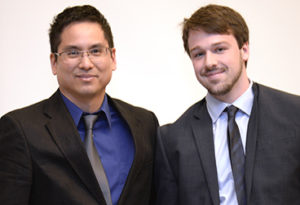By Eric Freedman
![]() While the COVID-19 pandemic wreaks havoc around the globe, our environmental journalism and Capital News Service students are bringing localized news to papers and online news outlets across Michigan and the Great Lakes region.
While the COVID-19 pandemic wreaks havoc around the globe, our environmental journalism and Capital News Service students are bringing localized news to papers and online news outlets across Michigan and the Great Lakes region.
Our stories address a wide range of topics with impact on our readers — from domestic abuse to police suicides, from online education to expected fall college enrollments, from Great Lakes research to financial insecurity, from telemedicine to public transit, from hunting and fishing to child support payments, from boater safety to women’s shelters.
![]() The Knight Center’s Great Lakes Echo and CNS play an important role as many local and community newspapers struggle due to plummeting ad revenue. One newspaper reports a 90% drop in weekly ad pages.
The Knight Center’s Great Lakes Echo and CNS play an important role as many local and community newspapers struggle due to plummeting ad revenue. One newspaper reports a 90% drop in weekly ad pages.
In Michigan and across the nation, some papers have laid off employees and cut back or eliminated print editions. As their news hole shrinks, the amount of pandemic-related information they can provide their readers dwindles as well.
![]() We help fill that gap. So does Focal Point, the Journalism School’s broadcast news magazine. Those students’ coverage just won a first-award place from the Society of Professional Journalists in the weekly College Coronavirus Coverage competition.
We help fill that gap. So does Focal Point, the Journalism School’s broadcast news magazine. Those students’ coverage just won a first-award place from the Society of Professional Journalists in the weekly College Coronavirus Coverage competition.
And while news organizations are putting more coronavirus stories and information online, many families still lack broadband internet service for infrastructure, technological and economic regions. Data from Connect Michigan, a nonprofit group advocating for increased internet access, shows nearly 381,000 homes across the state lack broadband service. At the same time, the public libraries that provide local residents with free internet access are closed.
That adversely affects adults who must work at home, job-hunters and children who are supposed to do schoolwork online. Continue reading

